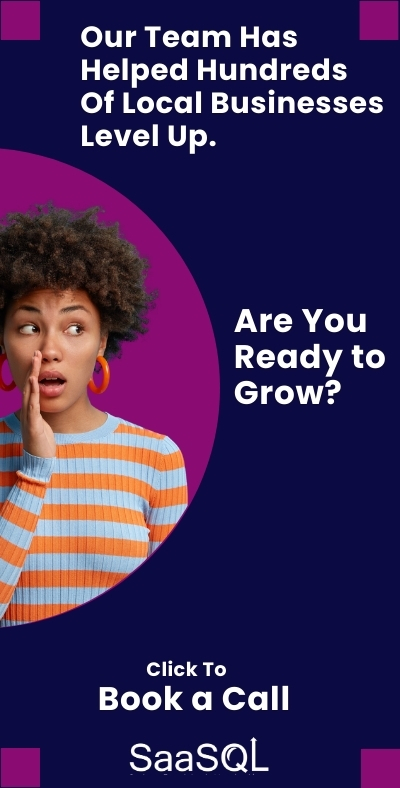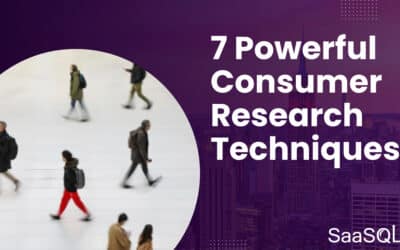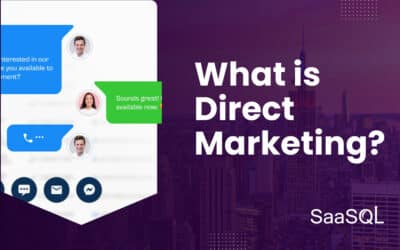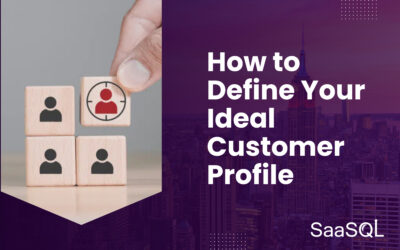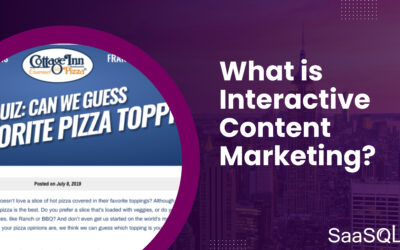AI Marketing for Local Businesses
Local businesses often struggle to make their marketing campaigns work. Limited budgets, poor audience targeting, and ineffective ad spending lead to disappointing results. Traditional marketing strategies lack the speed and precision needed to compete in today’s fast-moving digital landscape. This is where AI marketing for local businesses comes in.
By leveraging artificial intelligence, local businesses can optimize ad spending, personalize customer interactions, and analyze real-time data to drive better results. AI-Powered Marketing is no longer a luxury—it’s a necessity for staying competitive.

AI-driven tools provide deep insights, automate repetitive tasks, and ensure that marketing budgets are used efficiently. With AI, businesses can make data-driven decisions, refine their approach on the fly, and maximize their return on investment. Studies show that companies using AI in marketing experience 30-50% increases in efficiency and ROI.
Here we will dive deep into why local marketing campaigns fail and how AI-driven solutions can rescue underperforming strategies. We will highlight data-backed insights on AI’s role in ad optimization, customer engagement, and real-time campaign adjustments—all key elements in turning failing campaigns into success stories.
Why Local Marketing Campaigns Fail
Many local businesses launch marketing campaigns with high hopes, only to see poor results. The main reasons for failure often stem from outdated methods, ineffective targeting, and mismanaged budgets. Understanding these common pitfalls is crucial for turning struggling campaigns around.
- Lack of Data-Driven Insights
Traditional marketing relies on intuition and guesswork, whereas AI-powered marketing thrives on data. Without access to real-time insights, businesses miss critical opportunities to adjust their strategies. Studies show that businesses leveraging AI analytics see a 30% improvement in marketing ROI compared to those relying on manual tracking.
- Poor Audience Targeting
A one-size-fits-all approach no longer works. Many local businesses fail to segment their audience properly, leading to irrelevant messaging and wasted ad spend. AI-driven ad optimization refines audience segmentation, ensuring that marketing messages reach the right people at the right time.
- Ineffective Budget Allocation
Without automated budget adjustments, businesses often overspend on underperforming channels while neglecting high-converting ones. AI tools analyze campaign performance in real time and reallocate funds to maximize impact, reducing customer acquisition costs by up to 40%.
- Slow Response to Consumer Behavior
Consumer trends shift quickly, and failing campaigns often suffer from delayed reactions. AI enables real-time campaign adjustments, ensuring businesses adapt instantly to customer preferences, leading to better engagement and higher conversion rates.
Understanding these challenges is the first step in transforming failing campaigns into profitable ones. The next section will explore how AI marketing for local businesses solves these issues with precision and efficiency.
How AI Marketing for Local Businesses Fixes Underperforming Strategies
- Smart Data Analysis for Better Decision-Making
AI-powered tools provide deep insights by analyzing vast amounts of data in real time. Businesses leveraging AI-driven analytics experience a 30% increase in marketing ROI, enabling them to make more informed decisions and refine campaigns quickly.
- AI-Powered Personalization for Higher Engagement
Personalized marketing leads to better customer experiences. AI enables businesses to craft targeted messages based on user behavior, preferences, and past interactions. Research indicates that AI-driven personalization increases conversion rates by 35%, making marketing efforts significantly more effective.
- Automated Budget Allocation & Smart Bidding
AI optimizes ad spend by distributing budgets across high-performing channels. Automated bidding adjusts in real time to maximize impact, reducing customer acquisition costs by up to 40%. This ensures businesses get the best results without overspending on ineffective strategies.
- AI-Enhanced Customer Engagement & Lead Generation
AI chatbots and automated communication tools streamline engagement, ensuring no lead is left behind. Companies using AI-driven chatbots experience 20-40% more leads, improving conversion rates and customer satisfaction through immediate, relevant responses.
- Real-Time Optimization & Performance Adjustments
With AI, marketing campaigns are no longer static. AI identifies weak points and makes instant adjustments, increasing efficiency and impact. Studies show that AI-driven campaign optimization improves ad performance by 50% within three months.
By addressing these key areas, AI marketing for local businesses transforms failing campaigns into high-performing ones, ensuring sustainable growth and improved profitability.
For a deeper dive, read our guide to How AI Marketing For Local Businesses Can Rescue Failing Campaigns.
How to Implement AI Marketing for Local Businesses
AI marketing may seem overwhelming for local businesses, but it doesn’t have to be. The key is to focus on a few high-impact areas first, then expand as you gain confidence. Here’s how local businesses can start using AI to improve marketing results.
Step 1: AI-Powered Customer Engagement
What to Do:
Enhance customer interactions with AI website chatbots and automated messaging to provide instant responses, schedule appointments, and capture leads 24/7.
How to Do It:
- Use tools like Chatfuel, ManyChat, or SaaSQL to integrate a chatbot on your website and social media.
- Train the bot with FAQs, service details, and customer support workflows.
- Connect AI-driven SMS and email automation for follow-ups using platforms like Twilio or ActiveCampaign. SaaSQL clients automatically have their SMS / Email communications powered by Twilio.
Expected Results:
- Faster response times and improved customer satisfaction.
- Up to 40% more leads captured from website visitors.
- Increased engagement and appointment bookings without additional staff effort.
Step 2: AI-Driven Advertising Optimization
What to Do:
Use AI to optimize ad spend, improve targeting, and ensure your budget is used efficiently across platforms like Google and Facebook.
How to Do It:
- Enable Google Ads Smart Bidding or Facebook Advantage+ to automate ad spend based on performance.
- Use AI-powered audience segmentation tools like Seventh Sense or Adzooma to target high-intent users.
- Analyze real-time ad performance and adjust automatically using AI dashboards.
- For a next level tactic, leverage SaaSQL’s Dynamic Cross Channel Marketing campaigns to integrate all of these tactics into one comprehensive solution. This includes data that targets high-value users, automated ad spend across platforms based on performance and real-time insights that drive down the cost of marketing.
Expected Results:
- 30-40% lower customer acquisition costs by improving ad efficiency.
- Higher ROI as AI reallocates budget to top-performing ads.
- More precise audience targeting leading to better conversion rates.
Step 3: AI-Powered Personalization for Email & Content
What to Do:
Deliver highly personalized emails, offers, and website content tailored to customer behavior.
How to Do It:
- Use AI email tools like HubSpot, Mailchimp, or SaaSQL to analyze customer interactions and send relevant content.
- Implement dynamic content on your website that adjusts based on visitor behavior using platforms like Adobe Sensei or Optimizely.
- AI-powered product recommendations can be added to e-commerce sites to increase sales.
Expected Results:
- 35% higher engagement from email and content marketing.
- More repeat purchases and customer retention.
- Higher sales from AI-driven recommendations.
Phase 2: Expanding AI Integration
Once businesses have mastered the basics, they can expand AI efforts with:
- Predictive Analytics: Forecast customer behavior and trends using AI-powered CRMs like Salesforce Einstein.
- Voice Search Optimization: Optimize website content for voice search queries with AI-driven keyword analysis.
- AI-Driven Social Media Management: Automate content creation, posting schedules, and engagement analysis using Sprout Social, Hootsuite or, most affordably and effectively, SaaSQL.
- AI-Powered Customer & Lead Outreach: AI agents can now engage in proactive customer outreach via text, email, or even phone calls. Using platforms like Conversica, Exceed.ai, orSaaSQL, businesses can automate, follow-ups, qualify local business leads, and personalize messaging at scale. AI-driven outreach ensures consistent engagement, reducing response times and increasing conversions without overloading sales teams.
By implementing AI strategically, local businesses can save time, cut costs, andimprove customer engagement, ultimately leading to greater success in their marketing efforts. For more insights on the topic read more about how A.I. is Redefining Performance Marketing.
Wrapping Up
AI marketing for local businesses is no longer an optional tool—it’s a necessity to stay competitive in an increasingly digital landscape. The ability to leverage AI for customer engagement, advertising optimization, and personalized marketing can mean the difference between a struggling campaign and a thriving one.
By implementing AI strategically, businesses can save time, reduce costs, and significantly enhance customer relationships. The initial steps—integrating AI-powered chatbots, optimizing ad spend, and personalizing customer interactions—provide an immediate boost. As businesses grow more comfortable, expanding into predictive analytics, voice search optimization, and AI-driven social media management will further drive results.
Those who embrace AI marketing early will position themselves as industry leaders, ensuring their marketing efforts remain relevant, data-driven, and high-performing. Now is the time for local businesses to leverage AI technology, optimize their campaigns, and secure long-term success in an evolving marketplace.
Additional Resources
“AI in Marketing Statistics: How Marketers Use AI in 2025” – This article from SurveyMonkey highlights that 88% of marketers incorporate AI into their daily activities, underscoring the widespread adoption of AI tools in marketing strategies.SurveyMonkey
“31 AI Marketing Statistics for Small Businesses” – Fit Small Business reports that 98% of marketers utilize AI in some capacity, with 23% of small businesses having fully integrated AI into their operations. Fit Small Business
“AI and Marketing: What the Stats Show” – MarTech discusses that 85% of B2B marketers are utilizing generative AI, with 76% expressing satisfaction with the outcomes, indicating positive reception and effectiveness of AI in marketing efforts. MarTech





